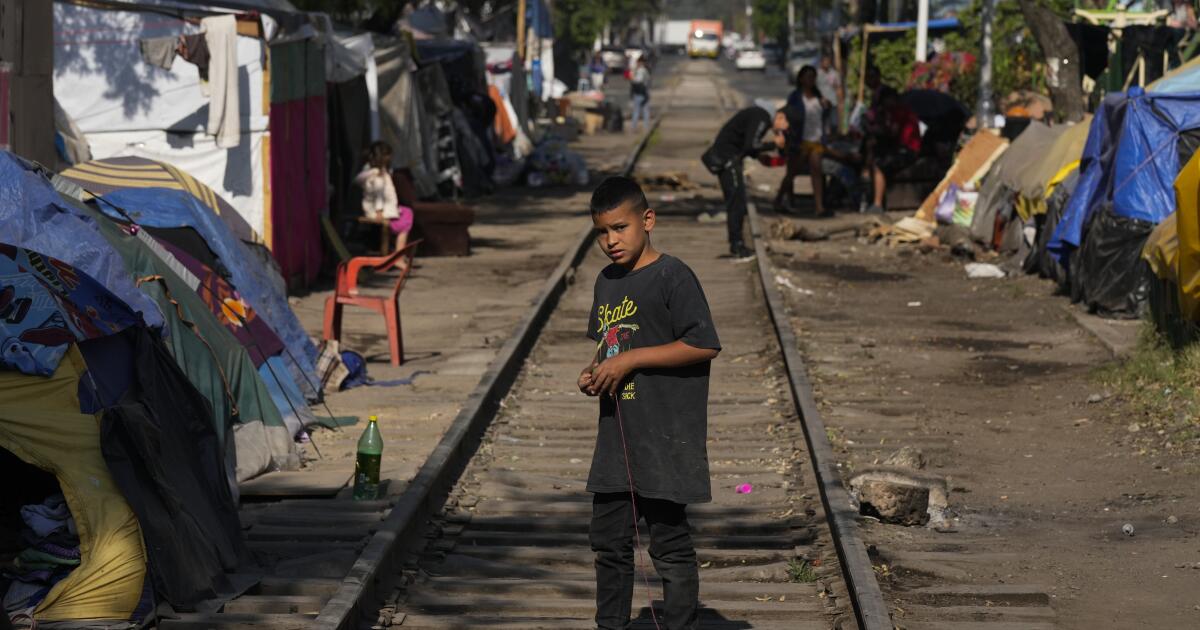DAKAR (Reuters) – When Aramata Djiba was arrested and taken with her four-month-old baby to a maximum security prison in Senegal’s capital Dakar, she said she felt it was the “end of the world”.
“I had no hope… I cried for a week,” said the 29-year-old kindergarten teacher. She said she shared a cell, and a single toilet, with more than 40 other women for six months.
Djiba, who was indicted in September alongside five of her relatives on criminal charges the family say were politically motivated, was released this week under a new amnesty law.
President Macky Sall signed the law to ease tensions, saying it was to support “national unity”, following unrest after he postponed the February presidential election. The vote is now due to take place on Sunday.
Djiba is elated to be free, but nonetheless disapproves of the amnesty law, which she said the president introduced “to save his own name”.
“At least if they were to be judged on whether they’re guilty or not, that would be normal,” said Aly Coly, Djiba’s husband. “You just can’t bring a person in and say, ‘You did this, supposedly,’ and lock them up for… months, and then one day say you are going to erase all the charges.”
Coly was at work on Sept. 16 when his relatives were arrested after gendarmes raided their shared home and alleged they had found Molotov cocktails – incendiary devices – in the garden. The couple’s two-year old son was also taken that day and held for about a week before being handed back to Coly, Djiba and Coly said.
The family and their lawyer, Kandiack Francois Senghor, say they knew nothing about any weapons and that anyone could have accessed their garden.
Spokespeople for the justice ministry and the gendarmerie did not respond to repeated requests for comment on the case of Djiba and her relatives. They also did not respond to requests for comment on how many people have been detained and how many have been released, and on criticism of the amnesty measure.
Human Rights Watch said this month that while the law grants amnesty to hundreds of protesters and opposition members arrested over the last three years, it will also likely let security forces off the hook for excessive and sometimes deadly use of force against protesters.
Justice Minister Aissata Tall Sall told a news conference last month when the government began freeing detainees that “the reasons that sent them in prison were never political”.
Seydi Gassama, head of Amnesty International Senegal, estimated that more than 700 people were released in recent weeks even before the law was passed by parliament on March 7.
“For the most part, these are people who were expressing their opinions, demonstrating peacefully and who were arrested,” he said.
Across Senegal, between 1,200 and 1,600 people were detained between 2021 and 2024 for alleged crimes relating to anti-government protests, according to Amnesty International and the opposition coalition.
The charges against Djiba and her relatives included criminal association in connection with a terrorist entity, attack and conspiracy against the authority of the state, participation in an insurrectional assembly and manufacture and possession of weapons, their lawyer Senghor said.
Without the amnesty law, their trials could have dragged on for years, he added.
Normally one of West Africa’s most stable democracies, Senegal has faced some of its most deadly unrest in history over the past three years, fuelled by outrage over legal cases brought against popular opposition leader Ousmane Sonko and concerns that Sall would run for a third term.
After ruling out a third term in July, Sall last month attempted to postpone the scheduled Feb. 25 election by 10 months, leading to fresh protests. The vote is now scheduled for March 24, after a court overruled his decision.
With 19 candidates and no clear front-runner, the election is set to be the most wide-open since independence in 1960.
TIME LOST
Djiba and Coly’s family are avowed supporters of opposition leader Sonko and his handpicked presidential candidate, Bassirou Diomaye Faye. When the paramilitary gendarmerie searched inside their house after the arrests, they found party paraphernalia such as t-shirts and wrist bands, Coly said.
“But is it a crime to support a political party?” he said.
He believes many people who had not previously been politically engaged will now vote against the ruling party and Sall’s chosen successor, Amadou Ba, because they or their relatives had been detained.
Djiba lost her job in a private school while she was in prison.
Her sister-in-law, 20-year-old Ada Fatou Seck Bodian, who was also arrested, had been studying petrochemistry and may need to repeat the year, Coly said.
Another family member, 22-year-old Khady Dieme, had just received a visa for France where she was due to travel the month she was arrested to pursue an advanced vocational diploma. Dieme said she does not know whether she will now have another opportunity to do so, she said.
“There is no way to be reimbursed for the time lost,” Coly said. “These are young people, they’re students, this is going to destroy their careers.”
(Additional reporting by Alessandra Prentice, Sofia Christensen and Cooper Inveen; Editing by Frances Kerry)
